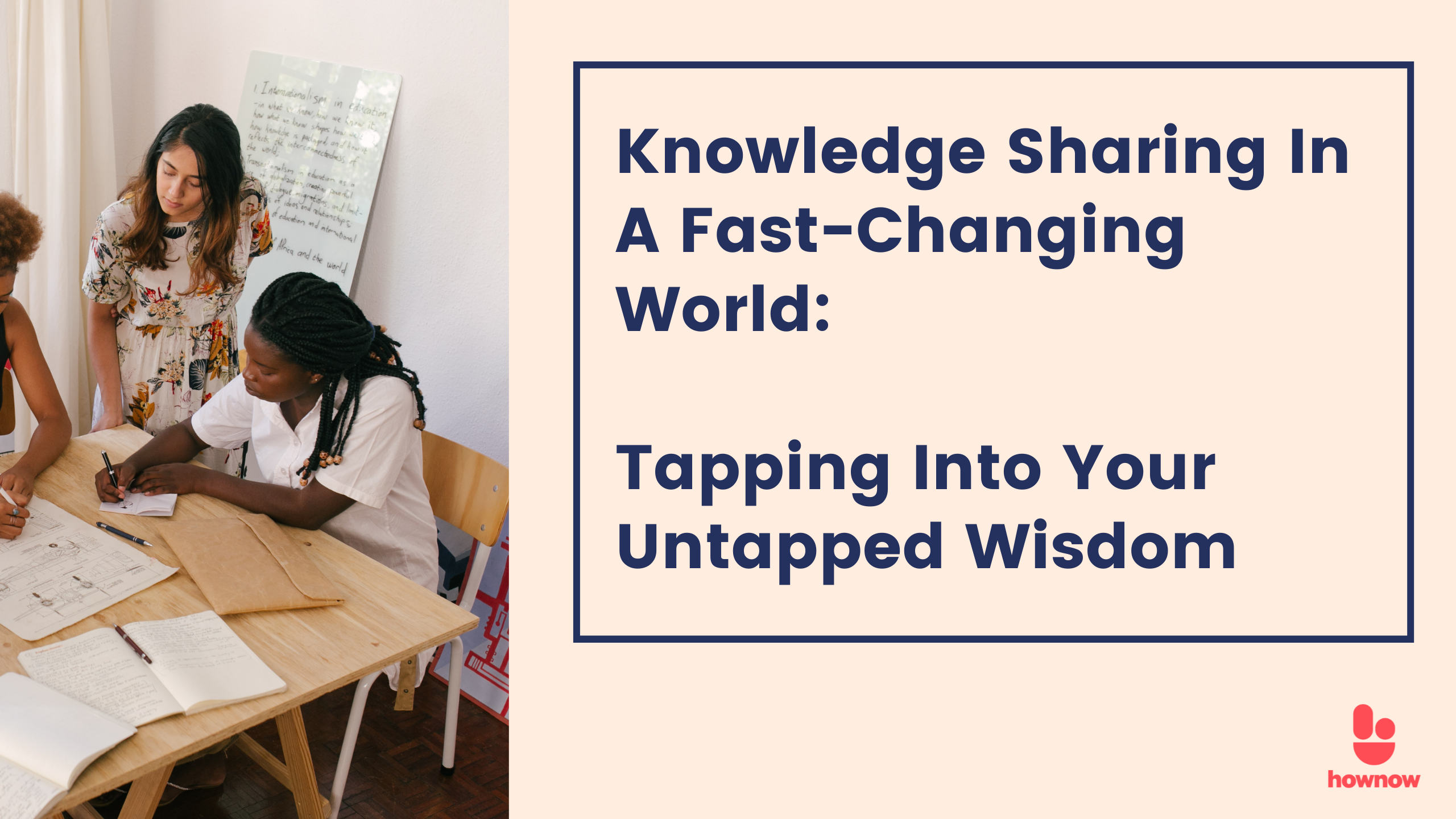😤 Fed up of losing knowledge every time someone leaves your team?
🤦 Worried about all the great information that’s shared everyday and never captured?
🧠 Desperate to build a collective company brain so your best people can learn from each other?
You’re right to be all of those things! And you absolutely can tackle them all 🙌 but there’s no silver bullet!
The things you do every day determine whether you become a knowledge sharing organisation.
And we reckon there are five steps that convert you into one, if you rinse and repeat on a regular basis.
Knowledge is being shared every day, your job is to track down where and observe how it happens – not to blindly go in all guns blazing with your own ideas on how to do it.
People are organically demonstrating knowledge sharing behaviours in places like Slack, Teams, online communities and social media.
And we should be nurturing and facilitating this, while understanding how we can capture and scale it.
This is the path of least resistance, and that’s not the bad thing we often associate this phrase with! By tapping into natural behaviours, we’re more likely to get buy in and less likely to experience push back.
The capturing part of it is key when we’re seeing repeat questions or useful wisdom being shared in closed channels, when a wider audience will benefit from accessing it.
When do people want to learn? When they face a problem.
Why is that the most important moment to connect them with information? Because they’re most motivated to learn.
What happens when they go searching for that information and can’t find it…
No solution, no capitalising on motivation, no positive feedback around learning.
One of the biggest barriers to learning in our moments of need is finding the information we need!
Especially when it’s scattered across a bunch of places, like shared drives, team-specific platforms or someone’s downloads folder on a work laptop.
To become a knowledge sharing organisation, you need a central place for all your resources and information! This’ll allow people to search for it when they need it and find it when it can make a difference.
And at the end of the day, you can’t share what you can’t find either – so they’ll struggle to connect others with useful information..
You’re never going to become a knowledge sharing (or creating) organisation if only a few people are responsible for building and distributing resources.
At the speed the world is changing, we can’t afford to have knowledge bottlenecks.
So, we need to give our internal experts the tools and guidelines to create resources that tackle specific problems. They’re the ones with contextual knowledge that can be applied when it matters! They can help us explain the complicated in a way that’s relatable and easy-to-apply.
But, we have to set the guard rails and guidelines for sharing those best practices and on-the-job wisdom.
It’s not a knowledge dump, it’s a resource designed to tackle a specific problem. So we’re not asking people to word vomit everything they know onto a page, we’re asking them to capture what’s relevant. That can be a tricky skill and internal experts need our help to do it well.
Then there are questions around formats, naming and things like that. It’s useful if our resources are consistent – it’ll make us a better knowledge applying organisation – so we have to put guidance in place to help people do it.
One final tip! Once you open that process up to people, you also need to ensure you keep the resources up-to-date, otherwise that central place becomes a landfill site for content.
Don’t do it for the sake of doing it! Whether it’s learning, knowledge sharing or a part of your role, we should be bringing everything back to purpose and impact. This will help us create those positive feedback loops
Especially if we’re able to show a tangible link between knowledge sharing and performance.
This resource from expert A helped teammates B, C and D improve their customer resolution scores.
Content from internal sales expert A directly helped reps B, C, D, E and F reduce their sales cycle and close more deals.
People like to do meaningful work, work becomes meaningful if we connect it to the wider company goals or mission, knowledge sharing becomes meaningful when it helps us do that.
Next time you’re thinking of bringing in a sage on stage, ask yourself whether the time would be spent learning from each other.
After all, our teammates often understand our challenges and are going through the same or similar things, in the context of our business.
This is a great lesson we learned from Lavinia Mehedințu
“We’ve put a lot of focus on people sharing with each other. We have all kinds of community sessions that aren’t about speakers… but they’re mostly about ‘I know that’, ‘I know we have the same challenge’ or ‘we know something about each other’s challenges’ and let’s share.
“There’s a great power as a learning designer to know a lot about your audience and how they can help each other, and make sure that you facilitate or nurture knowledge sharing.”
We’re calling it a conversational culture and it’s something we can facilitate in the beginning by allowing people to come together to solve problems! And if there’s a positive outcome, they’ll hopefully take that behaviour forward with them…
Check out our full guide to Knowledge Sharing In A Fast-Changing World: Tapping Into Your Untapped Wisdom

%20(1).webp)